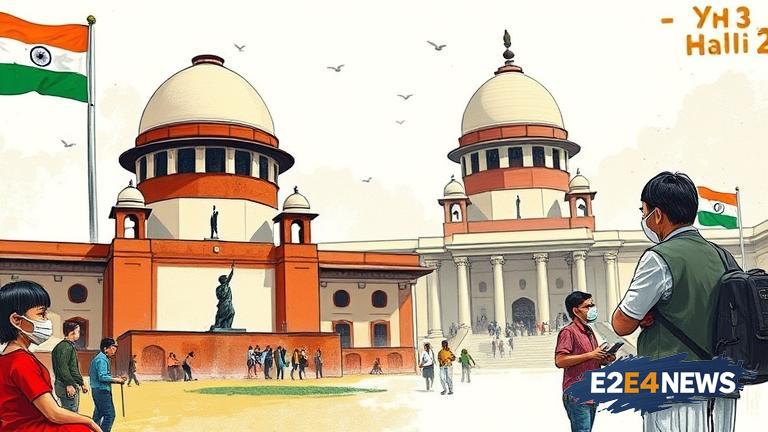The Indian Election Commission has been caught in a precarious situation, torn between the Supreme Court’s orders and the government’s pressures on electoral roll analysis. The Supreme Court has been pushing for greater transparency and accountability in the electoral process, while the government has been seeking to exert its influence over the Commission’s decisions. The electoral roll analysis has become a contentious issue, with the Court directing the Commission to implement certain reforms and the government resisting these changes. The Commission has been struggling to balance its constitutional mandate with the political pressures it faces. The Supreme Court’s interventions have been aimed at ensuring the integrity of the electoral process, but the government has been accused of trying to undermine the Commission’s independence. The electoral roll analysis is a critical aspect of the electoral process, as it helps to identify and remove duplicate or fake voter entries. The Commission has been working to implement the Court’s directives, but the government has been slow to respond to these efforts. The delay has raised concerns about the potential for electoral manipulation and the undermining of the democratic process. The Commission has been facing criticism for its handling of the situation, with some accusing it of being too slow to act and others accusing it of being too beholden to the government. The Supreme Court has been monitoring the situation closely, and has issued several directives to the Commission to ensure that it is complying with its orders. The government, on the other hand, has been trying to exert its influence over the Commission’s decisions, which has raised concerns about the potential for political interference in the electoral process. The electoral roll analysis is just one aspect of the broader electoral reform agenda, which has been a subject of debate and controversy in India. The Commission has been working to implement a range of reforms, including the introduction of voter verification and the use of technology to improve the electoral process. However, the government has been resisting some of these changes, which has slowed down the pace of reform. The Supreme Court’s interventions have been crucial in pushing the reform agenda forward, but the government’s resistance has raised concerns about the potential for backsliding. The Commission has been facing a difficult balancing act, as it seeks to navigate the competing demands of the Court and the government. The electoral roll analysis is a critical aspect of this balancing act, as it has the potential to impact the outcome of elections and the stability of the democratic process. The Commission’s handling of the situation will be closely watched, as it has significant implications for the future of Indian democracy. The government’s actions will also be under scrutiny, as it seeks to navigate the complex web of electoral politics and judicial oversight. The Supreme Court’s role in shaping the electoral reform agenda will be critical, as it seeks to ensure that the democratic process is fair, transparent, and accountable. The Commission’s independence and autonomy will be key to ensuring that the electoral process is free from political interference and manipulation. The electoral roll analysis is just one aspect of the broader struggle for democratic reform in India, which has been marked by controversy, debate, and judicial intervention. The outcome of this struggle will have significant implications for the future of Indian democracy and the stability of the electoral process.
